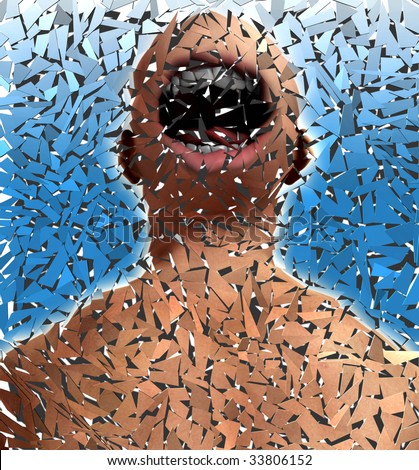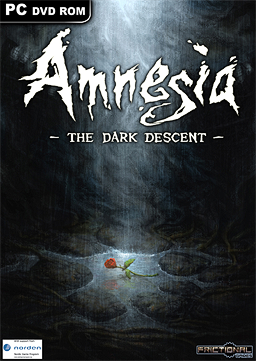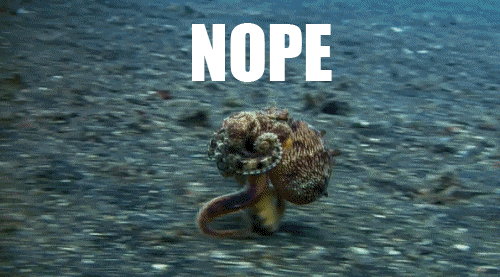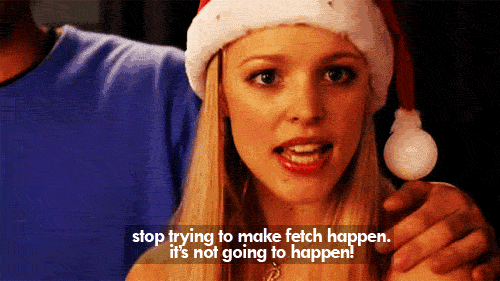Hello hello!
So anyone who follows me on Twitter - or anywhere, really - has probably noticed that I am majorly into podcasts. I've alluded to my love of tabletop RPGs on more than a few occasions, and as a fledgling DM (Dungeon Master - the non-BDSM kind, though there's a surprisingly large overlap between the two communities...) I like to take inspiration from the best.
Before I explore today's topic in detail, a few recommendations - in no particular order, Critical Hit, How We Roll, One Shot, Campaign, The Adventure Zone, and Dungeons and Randomness are all funny and wonderful programs that showcase both inclusive gaming (on and off the table, for the most part) and really, really good storytelling. Writers and geeks should check them out. Don't worry about the rules; these podcasts are almost all story-focused, so it doesn't get too mathy and crunchy.
With those recs out of the way, I'd like to focus on D&R in particular. Having recently completed its 200th episode, the four (!) groups sat down with the DM, Jason Massey to talk about their experiences.
Now, two hundred episodes of anything is a trip, but I'm a binge-listener and a completionist, so it wasn't a big deal for me. However, the beginning of the series was pretty rocky. The first group to form, known as Group 1, was an all-male group of friends who'd met through the wrestling fandom. There are a lot of wrestling fans who also play D&D, for some reason, so that's not a problem - but the group dynamics were.
Beleagured DM Jason and hapless party leader Rob Wiesehan, playing tiefling warlock Malchus Grimnas, then spent about fifty episodes trying to rein in the murderous and careless shenanigans of this initial group. It's honestly a fascinating tour through toxic masculinity - players screw, rob, and murder their way across the land of Theria, and as Jason's worldbuilding becomes increasingly intricate and rich, most of the players enjoy being dicks more than they do abiding by the social contracts of D&D, to quote Rob.
Here's the thing about Dungeons and Dragons and most other roleplaying games - it's pretty essential, as Rob explained, that the other members of your party are trustworthy enough to not murder you in your sleep, screw you out of things like healing potions, share resources, and fight on your side during battles - and not, say, engage in player vs player combat or act in needlessly antagonistic ways. Interestingly, a couple of the early players from the group seemed genuinely baffled about why it might be a bad idea to act like dicks and fight people who are supposed to be on their side.
Now, group dynamics are an inevitable part of human interaction. We're social animals, and that means we're liable to be jerks and conflict with each other, but it's totally possible to ride out those painful spasms and create a lasting D&D group. Sometimes people leave, which is why inviting a few more people than you think necessary is often prudent. But it's a very important and basic part of this system, and most systems, that you do not screw over the people who are on your side.
The fact that multiple players in Group 1 just didn't understand this is fascinating, and honestly, only seems to have happened because it was an all-dude group. Broish humour is fine, but ripping on each other, jockeying for leadership, and being unnecessarily and often destructively subversive often led to doom and disorganization.
Perhaps because of Jason's expert implementation of consequences in the storylines, to an extent that many traditional creators should follow, the actions of many Group 1 members caught up with them. It seems that murdering, betraying, and robbing people willy-nilly is kind of not great. While the other groups and players sometimes made ethically questionable choices in the storyline, they always weighed them carefully. Una Anhelada, a gutsy devil-may-care paladin played by Izzy Chadwick, often spearheaded these - but her seeming recklessness and impulsive nature still included concern, empathy, and care for both her party members and fellow players.
As time went on, the DM added more groups, each of which went through their own growing pains. Holding auditions for new players meant screening and better integration of people, something important for a show, and interestingly, also brought a flood of lady players, as well as at least one non-binary and later trans male player. Not everyone there was white, either, which is a silent problem besetting many D&D games, but a welcome change here. Among the new blood was Brienne Marie, a delightful pixie of a person with a filthy sense of humour and a sparkling laugh. Quickly becoming Jason's platonic soulmate, her addition to the cast marks a sharp change in the show's style - very much for its benefit.
This isn't to say that GIRLS ARE ALWAYS BETTER, because a few of the new lady inductees were pretty irritating - and left quickly - but the most destructive players in the game were definitely all men. Their behaviour patterns had a lot in common, too - a determination to have their desires and goals met, often at the expense of the party; a refusal to accommodate others' needs and priorities, and toddler-like tantrums and antics when their requests were denied.
Group 1 went from being the primary party in the setting to an exception.As the other two, then three, then four (! counting a bonus group made of existing players) groups quarreled and debated and resolved conflicts in satisfying and interesting ways, Group 1 remained somewhat stuck in the past. When party members finally began to murder each other, in a culmination of the rivalries and toxic dynamics, virtually only Malchus remained. Because the players either selfishly focused on their own gimmicks and jokes or sabotaged each other, often both, Malchus (and Rob, his player) were exceptional. As the group reformed once, then twice, it gained lady members and non-toxic male members - and underwent a drastic transformation.
Even as Malchus grappled with the impact of his actions, the group would discuss their decisions carefully and cautiously. Not exploiting others, picking up a dorky and endearing young NPC wizard-fighter (who subverts the trope of that combo brilliantly), and helping each other in heartwarming ways, Group 1 became radically different from its roots.
The thing is, men don't have to suck. Male and female players can both participate in toxic masculinity, but focusing on sharing the spotlight, resolving conflicts without in-character violence, not plotting and planning about other player characters behind their backs - and out of character - and above all, just not being awful dicks to each other, will all result in much better table experiences. It's fine to create evil or morally ambiguous, selfish characters. But it's vitally important and mandatory for people to keep their character personas and grudges separate from in-person dynamics, and to settle table conflicts as soon as they happen.
D&D is easy to get invested in. The shared storytelling, improv with dice, and creating a world are intoxicating and empowering. Add in the capacity to be something impossible or better than one is in the real world, and you have a heady brew - but it's easy to get emotionally invested in one's persona and the storyline. When everyone's invested, and at least somewhat working together, it's a hit of pure magic. But even if the characters are planning to double-cross each other, players at the table have to use boundaries and not harm each other.
Failing to do this results in Reservoir Dogs - like chains of revenge and can absolutely ruin friendships forever, because of the basic lack of respect they represent. But working with the other players and keeping in-character conflicts and rivalries separate from real life makes sure everyone at the table can walk away with a spring in their step and an easy mind.
So anyone who follows me on Twitter - or anywhere, really - has probably noticed that I am majorly into podcasts. I've alluded to my love of tabletop RPGs on more than a few occasions, and as a fledgling DM (Dungeon Master - the non-BDSM kind, though there's a surprisingly large overlap between the two communities...) I like to take inspiration from the best.
Before I explore today's topic in detail, a few recommendations - in no particular order, Critical Hit, How We Roll, One Shot, Campaign, The Adventure Zone, and Dungeons and Randomness are all funny and wonderful programs that showcase both inclusive gaming (on and off the table, for the most part) and really, really good storytelling. Writers and geeks should check them out. Don't worry about the rules; these podcasts are almost all story-focused, so it doesn't get too mathy and crunchy.
With those recs out of the way, I'd like to focus on D&R in particular. Having recently completed its 200th episode, the four (!) groups sat down with the DM, Jason Massey to talk about their experiences.
What happened
Now, two hundred episodes of anything is a trip, but I'm a binge-listener and a completionist, so it wasn't a big deal for me. However, the beginning of the series was pretty rocky. The first group to form, known as Group 1, was an all-male group of friends who'd met through the wrestling fandom. There are a lot of wrestling fans who also play D&D, for some reason, so that's not a problem - but the group dynamics were.
Beleagured DM Jason and hapless party leader Rob Wiesehan, playing tiefling warlock Malchus Grimnas, then spent about fifty episodes trying to rein in the murderous and careless shenanigans of this initial group. It's honestly a fascinating tour through toxic masculinity - players screw, rob, and murder their way across the land of Theria, and as Jason's worldbuilding becomes increasingly intricate and rich, most of the players enjoy being dicks more than they do abiding by the social contracts of D&D, to quote Rob.
What social contract?
Here's the thing about Dungeons and Dragons and most other roleplaying games - it's pretty essential, as Rob explained, that the other members of your party are trustworthy enough to not murder you in your sleep, screw you out of things like healing potions, share resources, and fight on your side during battles - and not, say, engage in player vs player combat or act in needlessly antagonistic ways. Interestingly, a couple of the early players from the group seemed genuinely baffled about why it might be a bad idea to act like dicks and fight people who are supposed to be on their side.
Now, group dynamics are an inevitable part of human interaction. We're social animals, and that means we're liable to be jerks and conflict with each other, but it's totally possible to ride out those painful spasms and create a lasting D&D group. Sometimes people leave, which is why inviting a few more people than you think necessary is often prudent. But it's a very important and basic part of this system, and most systems, that you do not screw over the people who are on your side.
The fact that multiple players in Group 1 just didn't understand this is fascinating, and honestly, only seems to have happened because it was an all-dude group. Broish humour is fine, but ripping on each other, jockeying for leadership, and being unnecessarily and often destructively subversive often led to doom and disorganization.
When it got better
Perhaps because of Jason's expert implementation of consequences in the storylines, to an extent that many traditional creators should follow, the actions of many Group 1 members caught up with them. It seems that murdering, betraying, and robbing people willy-nilly is kind of not great. While the other groups and players sometimes made ethically questionable choices in the storyline, they always weighed them carefully. Una Anhelada, a gutsy devil-may-care paladin played by Izzy Chadwick, often spearheaded these - but her seeming recklessness and impulsive nature still included concern, empathy, and care for both her party members and fellow players.
As time went on, the DM added more groups, each of which went through their own growing pains. Holding auditions for new players meant screening and better integration of people, something important for a show, and interestingly, also brought a flood of lady players, as well as at least one non-binary and later trans male player. Not everyone there was white, either, which is a silent problem besetting many D&D games, but a welcome change here. Among the new blood was Brienne Marie, a delightful pixie of a person with a filthy sense of humour and a sparkling laugh. Quickly becoming Jason's platonic soulmate, her addition to the cast marks a sharp change in the show's style - very much for its benefit.
This isn't to say that GIRLS ARE ALWAYS BETTER, because a few of the new lady inductees were pretty irritating - and left quickly - but the most destructive players in the game were definitely all men. Their behaviour patterns had a lot in common, too - a determination to have their desires and goals met, often at the expense of the party; a refusal to accommodate others' needs and priorities, and toddler-like tantrums and antics when their requests were denied.
Back to Group 1
Group 1 went from being the primary party in the setting to an exception.As the other two, then three, then four (! counting a bonus group made of existing players) groups quarreled and debated and resolved conflicts in satisfying and interesting ways, Group 1 remained somewhat stuck in the past. When party members finally began to murder each other, in a culmination of the rivalries and toxic dynamics, virtually only Malchus remained. Because the players either selfishly focused on their own gimmicks and jokes or sabotaged each other, often both, Malchus (and Rob, his player) were exceptional. As the group reformed once, then twice, it gained lady members and non-toxic male members - and underwent a drastic transformation.
Even as Malchus grappled with the impact of his actions, the group would discuss their decisions carefully and cautiously. Not exploiting others, picking up a dorky and endearing young NPC wizard-fighter (who subverts the trope of that combo brilliantly), and helping each other in heartwarming ways, Group 1 became radically different from its roots.
But Not All Men
The thing is, men don't have to suck. Male and female players can both participate in toxic masculinity, but focusing on sharing the spotlight, resolving conflicts without in-character violence, not plotting and planning about other player characters behind their backs - and out of character - and above all, just not being awful dicks to each other, will all result in much better table experiences. It's fine to create evil or morally ambiguous, selfish characters. But it's vitally important and mandatory for people to keep their character personas and grudges separate from in-person dynamics, and to settle table conflicts as soon as they happen.
D&D is easy to get invested in. The shared storytelling, improv with dice, and creating a world are intoxicating and empowering. Add in the capacity to be something impossible or better than one is in the real world, and you have a heady brew - but it's easy to get emotionally invested in one's persona and the storyline. When everyone's invested, and at least somewhat working together, it's a hit of pure magic. But even if the characters are planning to double-cross each other, players at the table have to use boundaries and not harm each other.
Failing to do this results in Reservoir Dogs - like chains of revenge and can absolutely ruin friendships forever, because of the basic lack of respect they represent. But working with the other players and keeping in-character conflicts and rivalries separate from real life makes sure everyone at the table can walk away with a spring in their step and an easy mind.
***









